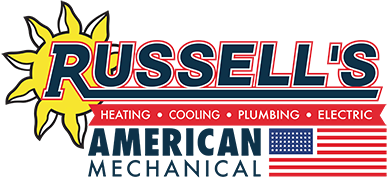What Foods Can I Put Down a Garbage Disposal?
Garbage Disposal-Safe Foods
Almost all foods are safe to put in your home’s garbage disposal, including but not limited to:
- Fruits
- Vegetables
- Beef
- Pork
- Chicken
- Salad
- Soup
- And more
However, some foods may require a little extra work before putting down your garbage disposal. It is recommended to cut large pieces of beef, pork, chicken, and other meats into smaller, bite-sized pieces before disposing. Doing so helps protect your garbage disposal’s blades from becoming dull and from clogging your kitchen’s plumbing.
Foods Not Recommended for Garbage Disposals
There are a few types of foods—pasta, rice, bread, animal bones, and coffee grinds—that could damage your garbage disposal and its plumbing, resulting in costly repairs . Expandable foods, or foods that expend when put in water, are not safe for garbage disposals. Expandable foods include:
- Pasta
- Rice
- Beans
- Foods high in starch (potatoes, cookies, cakes, etc.)
When a large amount of expandable foods are run through a garbage disposal, the foods cause blockage in your kitchen plumbing. If you notice your sink is slow to drain or water quickly backs up when doing the dishes, your garbage disposal may be clogged.
Seeds from fruits and vegetables, along with coffee grinds, can all be put into your garbage disposal, but doing so over a long period of time causes such foods to accumulate in your sink’s pipes and result in clogging. In addition to backups, large animal bones (chicken, turkey, beef, and pork) can dull disposal blades and cause severe backups.
Are Grease and Oil Safe for Garbage Disposals?
It is not generally not recommended to put grease and oil down your garbage disposal as they can cause clogging . To prevent clogging, it is suggested to run cold water while putting grease, oil, and fatty foods down your garbage disposal. It is important to solidify all grease, oil, and fatty foods using cold water so your garbage disposal properly breaks apart these foods. If warm water is used during this process, grease and oil will coagulate in your plumbing, causing clogging deeper into your plumbing system.
Tips to Prevent Blockage and Clogging in Your Garbage Disposal
Follow these easy steps to prevent clogs and keep your garbage disposal running properly:
- Always run cold water (never warm water) when placing any food in your garbage disposal
- Never put expandable foods, starches, seeds, coffee grinds, or cigarette butts in your garbage disposal
- Occasionally dispose of whole lemons or oranges to give your garbage disposal a fresh scent
- Occasionally use egg shells or small chicken bones to sharpen garbage disposal blades and clean the inside walls of the disposal plumbing
- Occasionally freeze vinegar in an ice tray and grind in your garbage disposal to disinfect the plumbing and garbage disposal blades
Warning: never insert hands, fingers, or other body parts into your garbage disposal in an attempt to unclog or retrieve small items. Doing so could result in serious injury.
American Mechanical installs and repairs garbage disposals in the Virginia Beach area. Contact us today to learn more about our residential plumbing services .
